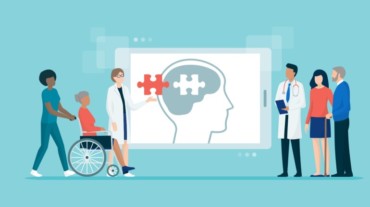
While absence does make the heart grow fonder, this adage is rarely given its due credit when it comes to health. As a collective, our society is ingrained to focus on the task at hand, and while planning for the future, we look at preparing for the worst, instead of preventing it. It is crucial to have an active lifestyle and proper diet to keep diseases at bay, particularly for seniors. Through regular health check-ups, elders can get ahead of any forthcoming ailments and prepare for a life that is healthier and longer.
Covid-19 has highlighted the need for such tests more than ever. A chest X-ray is a radiology test that gives an image of the chest and other internal organs. Problems in the lungs, heart, bones or aorta can be easily detected by this test. Conditions such as pneumonia, bronchitis, cancer, asthma, heart failure, cysts, tumors, and fractures can be detected early, and help prevent further damage.
ECG stands for electrocardiogram test, which generally detects problems by monitoring the electrical activity generated by the heart. These tests are advised to those who smoke, are overweight, have high blood pressure, experience chest pain, breathlessness, irregular heartbeats or belong to a family with a history of heart disease.
Kidney function test (KFT) and liver function tests (LFT) help identify problems with one’s kidney or liver, respectively. A doctor may advise giving blood and urine tests to check the conditions of the kidneys and lives as well. A KFT is advised in case one has diabetes or high blood pressure that can affect the kidneys. With growing age, it is imperative to check for any possible problems in the kidneys or liver before the damage is irreversible.

Vitamin B12 translates to good nutrition levels, while vitamin D helps absorb calcium, thereby keeping the bones strong. With age, the ability to absorb vitamins B12 and D reduces and can cause various health problems like neuropathy, anaemia, osteoporosis, cognitive impairment, memory problems, and difficulty in walking and overall movement. Therefore, it is important to get tested regularly for maintaining proper levels of both these vitamins.
Calcium plays a pivotal role in the smooth functioning of the cells, particularly for developing strong teeth and bones, facilitating muscle contraction and blood clotting. If elders are facing symptoms like bone disease, kidney or liver disease, or low vitamin D levels, they should get a serum calcium test done. Weak bones can also cause fractures and permanent disabilities. Hence, it is advisable that at the age 65, one must get a DEXA scan to identify serious bone issues such as osteoporosis.
A complete blood count (CBC) test counts the red blood cells, white blood cells, and platelets in the body. It identifies whether one has anaemia, monitors the blood condition, or checks the response of medication on patients undergoing chemotherapy. Additionally, the development of high blood pressure, diabetes and heart disease can make one susceptible to high blood cholesterol levels. A lipid profile test can be done to check blood cholesterol levels.

Tests such as X-rays, pathology, ECG, and radiology can also be done at home, making health check-ups more accessible and convenient for the elderly. The right kind of services and treatments at the right time can give you a proper insight into the disease and help take preventive measures against it.